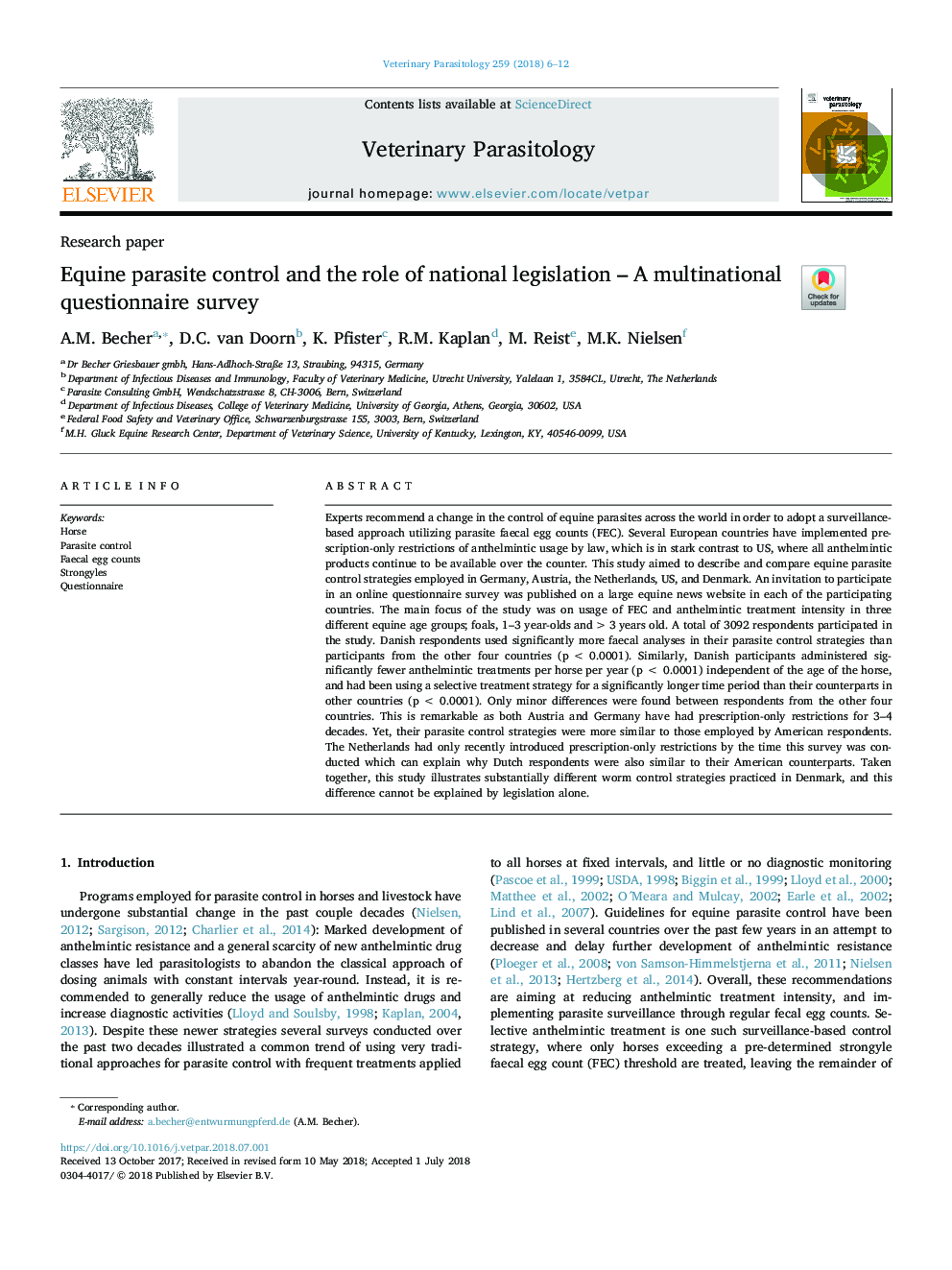| کد مقاله | کد نشریه | سال انتشار | مقاله انگلیسی | نسخه تمام متن |
|---|---|---|---|---|
| 8505874 | 1555617 | 2018 | 7 صفحه PDF | دانلود رایگان |
عنوان انگلیسی مقاله ISI
Equine parasite control and the role of national legislation - A multinational questionnaire survey
ترجمه فارسی عنوان
کنترل انگل اسب و نقش قوانین ملی - بررسی یک پرسشنامه چند ملیتی
دانلود مقاله + سفارش ترجمه
دانلود مقاله ISI انگلیسی
رایگان برای ایرانیان
کلمات کلیدی
موضوعات مرتبط
علوم زیستی و بیوفناوری
علوم کشاورزی و بیولوژیک
علوم دامی و جانورشناسی
چکیده انگلیسی
Experts recommend a change in the control of equine parasites across the world in order to adopt a surveillance-based approach utilizing parasite faecal egg counts (FEC). Several European countries have implemented prescription-only restrictions of anthelmintic usage by law, which is in stark contrast to US, where all anthelmintic products continue to be available over the counter. This study aimed to describe and compare equine parasite control strategies employed in Germany, Austria, the Netherlands, US, and Denmark. An invitation to participate in an online questionnaire survey was published on a large equine news website in each of the participating countries. The main focus of the study was on usage of FEC and anthelmintic treatment intensity in three different equine age groups; foals, 1-3 year-olds and >3 years old. A total of 3092 respondents participated in the study. Danish respondents used significantly more faecal analyses in their parasite control strategies than participants from the other four countries (pâ¯<â¯0.0001). Similarly, Danish participants administered significantly fewer anthelmintic treatments per horse per year (pâ¯<â¯0.0001) independent of the age of the horse, and had been using a selective treatment strategy for a significantly longer time period than their counterparts in other countries (pâ¯<â¯0.0001). Only minor differences were found between respondents from the other four countries. This is remarkable as both Austria and Germany have had prescription-only restrictions for 3-4 decades. Yet, their parasite control strategies were more similar to those employed by American respondents. The Netherlands had only recently introduced prescription-only restrictions by the time this survey was conducted which can explain why Dutch respondents were also similar to their American counterparts. Taken together, this study illustrates substantially different worm control strategies practiced in Denmark, and this difference cannot be explained by legislation alone.
ناشر
Database: Elsevier - ScienceDirect (ساینس دایرکت)
Journal: Veterinary Parasitology - Volume 259, 15 August 2018, Pages 6-12
Journal: Veterinary Parasitology - Volume 259, 15 August 2018, Pages 6-12
نویسندگان
A.M. Becher, D.C. van Doorn, K. Pfister, R.M. Kaplan, M. Reist, M.K. Nielsen,
